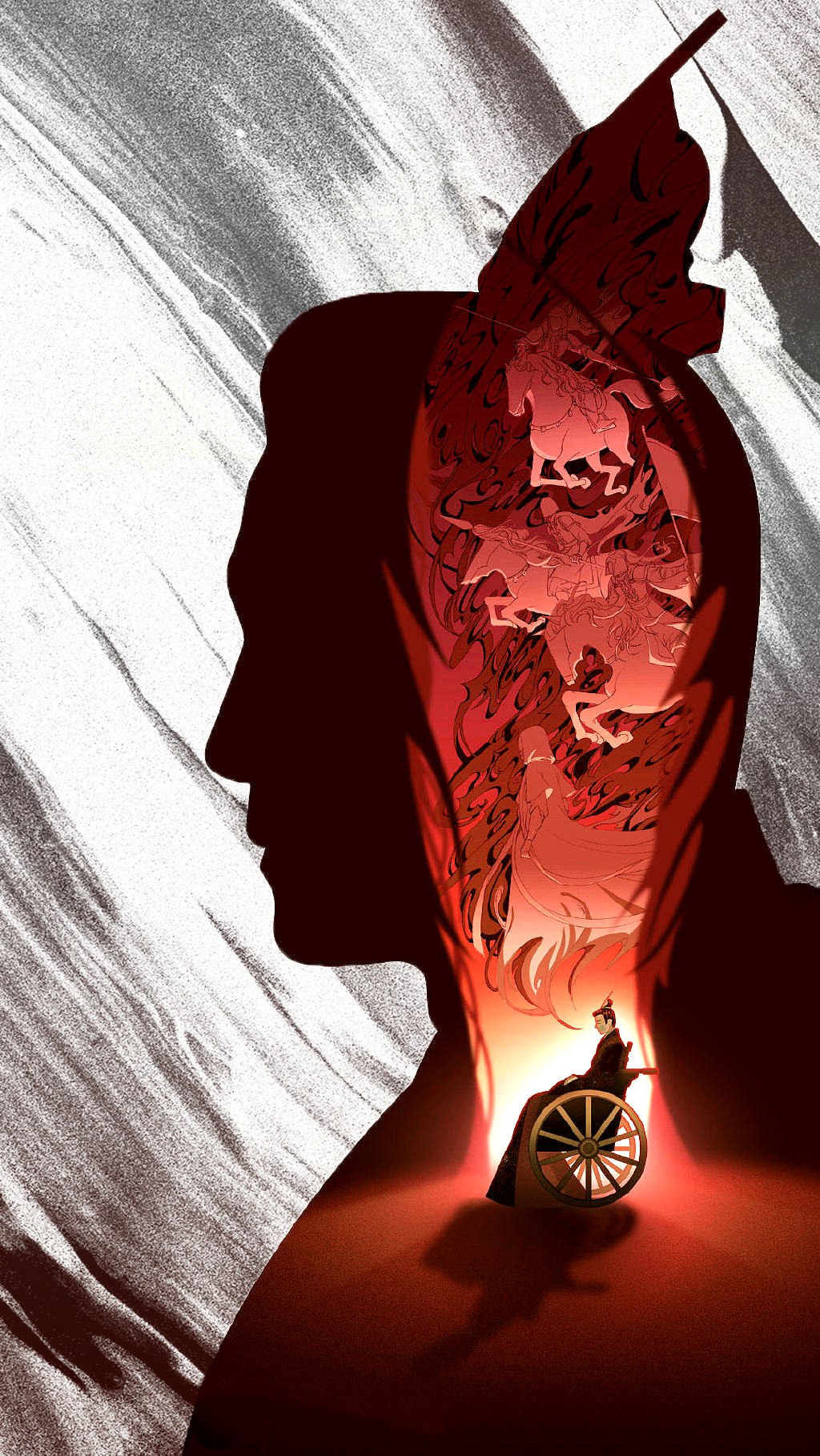The Jixia Academy | Hundred Schools of Thought: 稷下学宫 | 百家争鸣
This article is an excerpt from a much larger article that concerns the rise of Qi and its fray in the Central Plains wars that defined the mid Warring States period. Future chapters concerning the mid Warring States period in great detail will also come soon.
This article in particular will be about the renowned Jixia Academy and a brief glimpse into some of the competing schools of China's golden age of philosophy which all resided under the Academy's roof.
From tempestuous wastrel to a sagely king wise in council, discerning with talents, and immoveable in equanimity. By his middle reign, Qi was seen as a respected problem solver and many nearby states sought the Qi Duke for his mediation. He employed Sun Bin- a talented philosopher from Wei and reformed the Qi army into one of the best in the realm.
Music: Classic of Mountains and Seas
Concurrent to the ample stride Qi made in restrengthening its hard power under its military advisers like Sun Bin, one of the prominent reasons Duke Yinqi- (later King Wei of Qi's) reign was so remarkable was because Qi excelled in soft power in this age as well. Notably, Qi hosted much of the realm's foremost intellectuals. Scholars have often attributed to the flourishing of many philosophical schools during the late Spring and Autumn period and the Warring States period (the Golden Age of Chinese Philosophy) as 諸子百家 "Hundred Schools of Thought," and of these scintillating Thoughts, so many schools bloomed under this garden's roof.
Sun Bin and Plato are contemporaries of each other, and the Jixia Academy 稷下学宫 in Qi was founded around the time as the Platonic Academy (and later Lyceum of Athens.) Build in mid 4th century by Duke Huan of Tian Qi (Duke Yinqi's father- not to be confused with the eponymous 1st Hegemon) The academy was located outside the west gate of Qi capital of Linzi's 13 gates and likely named after it, it was made up of chosen scholars who received a prodigious stipend from the government in return for advising the king on government, rites and philosophy.
Famous philosophers such as the Daoist Shen Dao, and possibly Zhuangzi (who dreamed he was a butterfly dreaming it was him); Bian Que, the famous physician and miraculous wandering doctor. Zou Yan, the founder of the School of Naturalists- or the School of Yin- Yang; the Mohist philosopher Song Ying; and the Confucian philosophers Mencius, later Xun Zi, and the eloquent wit and polymath Chunyu Kun^ all stayed and lodged in the academy, what's more, were given space and resources to compile their vast canons of teachings here. There were also immemorable syncretic philosophers who attempted to meld several of the leading philosophies together: including in fostering renunciation of vices by blending Mohism with Confucianism, and in warfare even melding divergent schools of thoughts like Daoism with Legalism. The academy was the "Hundred School of Thoughts Contention" in miniature.
Any scholar who came to visit the academy could host a session and openly discuss his teachings in one of the audience halls. The discussions were free with no restrictions of national origin, ideological sects, nor age, and freedom of movement was not restricted. Those who were officially inducted became Bachelors, those who mastered the curriculums became teachers (Masters) and those who became experts of their respective schools became designated as Doctors. The number of the attending scholars in the academy is said to range from several hundred to a thousand. At times the Doctors were invited or assembled by the Qi government to make political decisions.
The school hosted many polymath of the age and has many rooms and quarters for its residing scholars. What's more, aside from great audience rooms, the academy boasted libraries that hosted vast collection of bamboo slips from nearly all the great masters. At all times, several canons of different schools were copied, edited and expounded in the academy in writing. Learning lived and continued furthered on.
The Jixia Academy is located in the western outskirt of the Qi capital of Linzi outside the western gate of the city. At that time, Linzi has 2 walled cities, the original walled urban metropolises as well as a new inner citadel where the Tian 田 ducal house resided and held court. Eastern and Central Zhou China were also prime real estates for the foremost intellectuals of the era, and the vast majority of the age's greatest founding philosophers were born from this largely urban, confidently Sinicized and more literate cluster. By contrast, western states like the Qin boasted nearly none of such sages and had to invite talented foreigners like Shang Yang to reform its own ways.
However, in order to restrengthen Qi- which his son Yinqi would follow, Duke Huan then founded this academy and then began to host many talents under its roof and pay them an exorbitant stipend and titles for their stay as his advisors.
Alternate version of the later founding was posited by Sima Qian, and stated that the academy was established once Qi became a preeminent power again. Evidence do support this version, for many of the foremost attendees were indeed around the time of the last days of King Wei and the later King Xuan of Qi. However, this does not preclude the fact that the academy (and its early staff) could have already existed earlier albeit in a less international form.
The academy was destroyed in the final days of the late Warring States, but its traditions, and many of the scholars who managed to live through the chaos remained and helped to usher the cultural renaissance during the Han dynasty.

THE BLOSSOMS- AGE OF PROFESSIONAL SCHOLAR- BUREAUCRATS
The Jixia Academy was the fabric of the larger deepening of scholar tradition in China. It was during this era that the Shi 士 (retainer) class- who were originally knightly attendants of their feudal lords (and whom many of the great intellectuals of the period were born from: including Confucius, Laozi*, Sun Tzu,* Sun Bin, and Mencius were born from) became a fully dedicated class of literati scholars.
The site of the Jixia Academy was rediscovered and confirmed recently in 2022, and although its stonework and body of teacher and students were broken in the final days of the Warring States period, its immortal scholar traditions persisted arguably for millenniums since.
In contrast to the hereditary nobility of many states, the Shi class by contrast was 1 of the "4 Occupations" 四民 and not hereditary. By contrast, the Shi was instead distinguished by their meritocratic achievements or bodies of written works. Thus the Shi 士 could be thought of as knights of the mind (as able advisors, ministers) or in the future, imperial China's scholar bureaucrats (士大夫 Shi Da Fu) meritocratic and not hereditary civil servants who attained their position through Imperial Exams and then elevated to great appointments. It's a tradition that would persist through all of China's remaining dynasties and sped along into the 20th century, and arguably, even in modern China today in the rigorous rote- and STEM focused Gaokao national examination system.
Check out this link to see the full backdrop of this era and the resounding re- ascension of Qi under Sun Tzu's supposed progeny Sun Bin.
Thank you to my Patrons who has contributed $10 and above: You made this happen!
➢ ☯ MK Celahir
➢ ☯ Muramasa
➢ ☯ Thomas Vieira
➢ ☯ Kevin
➢ ☯ Vincent Ho (FerrumFlos1st)
➢ ☯ BurenErdene Altankhuyag
➢ ☯ Stephen D Rynerson
➢ ☯ Michael Lam
➢ ☯ Peter Hellman
➢ ☯ SunB

.jpg)
.jpg)









%202.jpg)






.jpg)


.jpg)
.jpg)






Comments
The only difference I can discern is geographic. Qin was in the West, and the subsequent Han dynasty took Chang'an as it's capital and it's subsequent foreign policy was western (and northern) oriented. While Qi is very much in the East, do you think subsequent Chinese history would be more 'eastern' oriented? Instead of Huns, Turks and Central Asia focused under Han and T'ang, it would be more Korea and Japan and maybe maritime focused towards the Pacific instead?
Also, unlike tyrannical Qin under Legalism causing many rebellions, would Qi be a bit less tyrannical, more nuanced in its ruel ... causing no fall of Qin and subsequent rise of Han? A Qi Dynasty that lasted a thousand years??
Please give me suppositions on how Qi might be that because otherwise all of the responsibility for writing 3- 4 paragraphs are all on me and my time are quite previous. If possible, go into details on how you think this is since you are so invested in that possibility then I will answer.